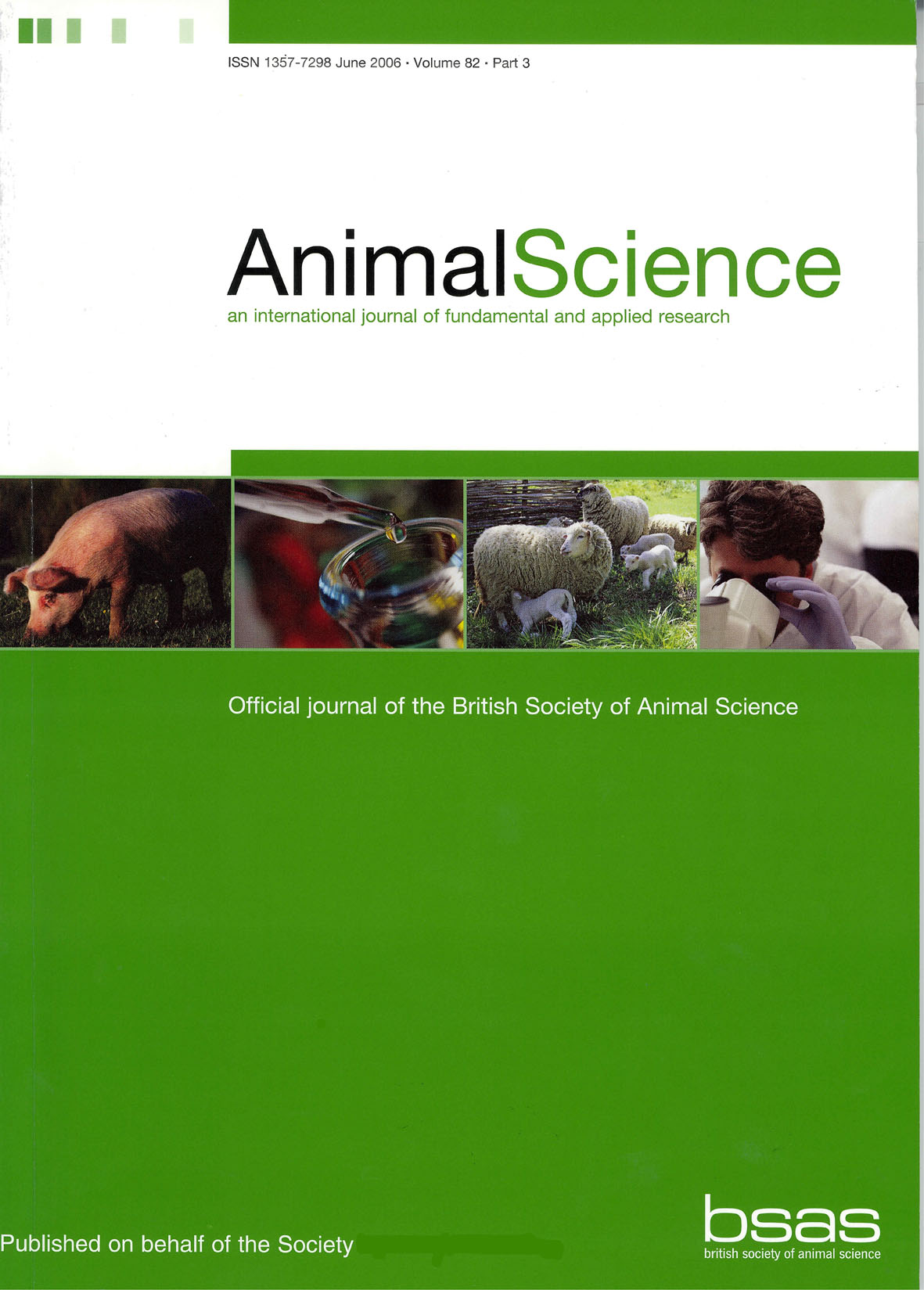Article contents
Heart rate responses and plasma cortisol and (β-endorphin concentrations in ewes subjected to laparoscopy and its associated handling procedures
Published online by Cambridge University Press: 02 September 2010
Abstract
Two experiments were performed to monitor the stress responses of sheep to intra-uterine insemination by laparoscopy and its associated handling procedures. The results of experiment 1 indicated that both restraint alone and full laparoscopic intra-uterine insemination in animals which had been sedated with 0·2 mg/kg diazepam promoted similar, significant (P < 0·001) short-lived increase in heart rate and plasma cortisol concentrations, but there was no effect of treatment on plasma β-endorphin concentrations. Experiment 2 compared restraint and full laparoscopy, with and without sedation in a 2 × 2 factorial design. The heart rate and cortisol responses following restraint and full laparoscopy were not significantly different, although laparoscopy tended (P = 0·06) to increase the duration of the heart rate response. Sedation with diazepam significantly (P<0·05) increased the duration of the heart rate response but attenuated (P < 0·05) the amplitude of the cortisol response. These results indicate that laparoscopic intra-uterine insemination does cause sheep to mount a typical stress response, but that most of this is attributable to the restraint required to effect insemination. However, the magnitude of the stress responses recorded were much lower than those reported to follow many other husbandry procedures.
- Type
- Research Article
- Information
- Copyright
- Copyright © British Society of Animal Science 1995
References
- 6
- Cited by


